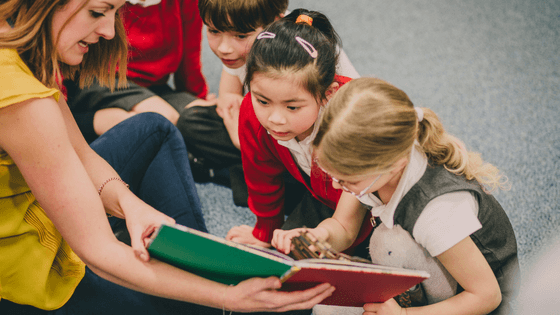
Literacy stories we tell ourselves
When I talk with New Brunswickers about literacy, I constantly hear that we have some of the lowest scores in Canada. Parents are worried they aren’t doing enough to help their kids, they’re angry at a system they see as failing, and they’re scared for their children’s futures. Search “literacy rates new Brunswick” online and a dire statement from the province appears. There is so much doom and gloom that our government created a new $7 million literacy program rather than pay down the $19,000 debt each of our children is currently saddled with.
Yes, we have challenges with literacy in New Brunswick. But I think we’re telling ourselves the wrong story about what’s happening. And I think it’s hurting our efforts to improve.
My friend Natalie Davison recently gave a talk sharing her approach to living a life rooted in core values. In a nutshell: “Tell yourself the good stories. Energize the positive. Stop fighting your fears.” We need to do this as a province, especially when it comes to literacy. We need to tell ourselves we are a province of authors, songwriters, and storytellers. We need to show our children the value and respect we have for these people and skills. We need to stop being afraid of being last on the list of average in an above-average country.
I’ve mentioned before that Finland is a world leader in literacy, and education in general. This is reiterated in the June report from the New Brunswick Literacy Secretariat. That report notes Canada ranked the same as Finland on a 2012 international standardized test for 15-year-olds, with both countries well above average. And while New Brunswick scored “below the Canadian average … [t]he difference in average test scores between New Brunswick and all other provinces was not considered statistically significant.” Maybe we’re not that bad off.
This isn’t to say we shouldn’t aim higher and work harder to improve. It also doesn’t mean we shouldn’t do everything to help those who struggle, at any age, with literacy. But we need to consider that we’re starting with the wrong message. We should be talking about cultivating a respect and love for reading that encourages people to build on their strengths, not focus on their weaknesses.
Another statement I hear again and again is that if we can’t teach our children to read by Grade 2, they’ll never excel. That’s a whole lot of pressure to put on seven and eight year old kids. Children can feel that negative message and it can have the opposite impact that we’re trying to achieve. So let’s be careful how we share this information, and question again if it’s the story we want to tell ourselves.
We could instead focus on New Zealand research that found children who started formal literacy at age seven performed as well as those who started at age five when tested later in school. (It’s interesting to note that the same report found that those who started at five were more likely to have negative attitudes towards reading.) Or we could focus on a 2013 study that concluded “[c]hildren learning to read later catch up to children reading earlier.” Or the UK movement to move formal education from age four to age seven.
Good ol’ Finland starts formal education at age seven. That’s Grade 2 for us. And that’s the age at which we’re ready to decide our children’s literacy fate? Let’s focus instead on ensuring they want to read at that age, and spend a few more years encouraging and empowering them, rather than focusing on how many didn’t make the grade. That doesn’t cost $7 million.
A version of this post appeared originally in the Times & Transcript. Click here for more of Jenna Morton’s She Said columns.